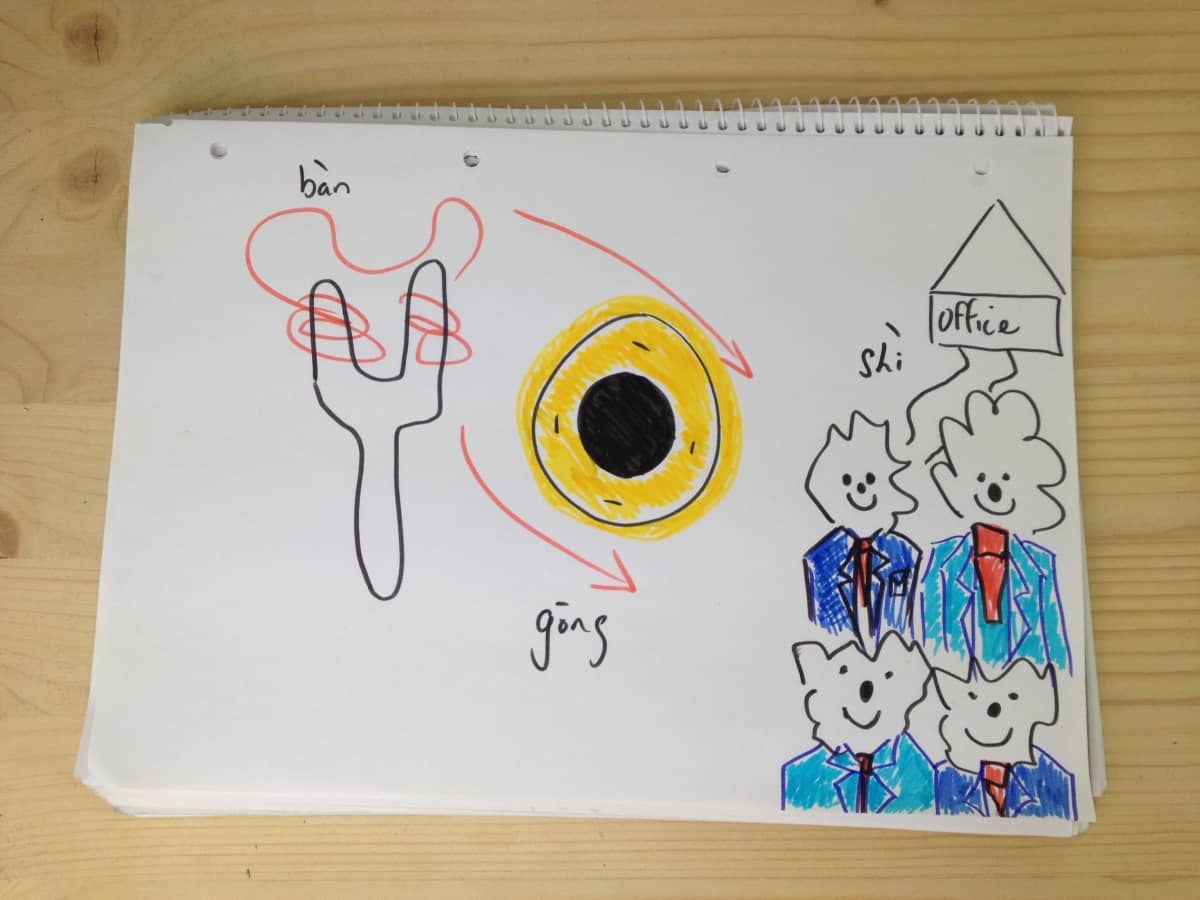Podcast: Download
Subscribe: Apple Podcasts | RSS

I was skeptical too.
Until I met Charles Byrd.
As a 15 year Silicon Valley veteran with an extensive background in technology and software, Charles needed Evernote to work better. His success demanded it.
But although Charles has some great things to teach us about optimizing Evernote for better memory, he’s also part of the larger memory improvement community. Just wait until you hear how he still uses lesson from Dominic O’Brien he learned a long time ago.
As a public speaker, trainer, and life long learner, Charles has combined his understanding of mnemonics with technology and productivity and become a recognized expert in the field.
He is also the founder of the company Byrd Word, LLC – specializing in productivity training, marketing, and technology to expand his reach. He specializes in the tools and workflows that will organize your team, reduce your anxiety, and x2 your business, school progress and personal improvement journey.
To learn more about how Charles can help you use Evernote in ways that improve your memory and productivity, I recommend his Kill the Chaos presentation.
Evernote For Memory Vs. Mind Mapping
After recording the interview with Charles, one of the first questions I had was how technologies like Evernote compare with Mind Mapping.
As you know, Mind Map Mastery is a worthy skill every lifelong learner should develop.
After you listen to this interview, I think you’ll have ideas on exactly how you can apply Charles’ core process to your mind map strategy.
Although how you would apply these techniques differ in time, what I love about the information Charles shares in this interview is that you can apply the “decision parameters” to all kinds of media.
Indeed, I am thinking about ways to combine mind maps with Memory Palaces and Evernote in one fell swoop as we speak.
This also includes how you use The Freedom Journal and other note-taking devices and approaches for organizing life in our current ocean of information overwhelm.
The simple process even applies to your memory training practice with Memory Palaces.
In many ways, I’ve been applying a similar process for years, but Charles has streamlined everything into a kind of ars combinatoria that any mnemonist can quickly link to their hand for use with any information you encounter in life.
Wouldn’t Evernote Cause More Digital Amnesia?
It’s a great question.

It depends.
Digital Amnesia is a real issue, one that all mature learners in the 21st century face.
But as Charles demonstrates beyond all doubt, it’s more about our habits around technology than anything else.
In other words, we need to avoid the traps of technological determinism. We cannot blame the technology for how we behave. But we can use the technology to help ensure we operate in better ways.
Can Evernote Provide Brain Exercise?
Although we didn’t talk about this question on the interview, I’ve been thinking about it ever since.
When thinking about brain exercise apps, memory experts are divided.
As a question of application, I think this software certainly can be used for brain exercise.
As a quick example, imagine using Evernote to capture all of the 00-99 images you create based on the Major Method for your PAO.
Likewise, you could enter a number of mnemonic examples of Magnetic Imagery you’ve drawn and placed in a Magnetic Memory Palace for review in Evernote:
Then, simply schedule in a review period that exposes you to your drawings without revealing the answers. This is a fantastic way to keep learning and give your brain an extra workout throughout the day.
This process also provides a simple and direct way for you to challenge your brain without feeding it the information, all within a simple app.
The trick is in making sure you have some “desirable difficulty” as part of the process so that you’re challenged. Sans Forgetica has been working in this area recently around reading, and using obstacles to move your memory forward is what personally applied Memory Palace science is ultimately all about.
But if you’re looking for the best memory improvement exercises, just make sure that you match the desired outcome with the processes and the information that will get you there.
Further Memory Improvement Software Discussion & Resources
There are many other learning opportunities related to technology and memory on the Magnetic Memory Method site.
For language learning:
How to Consistently Get Quick Victories With Language Learning Courses
For General Technology and Human Memory Discussion:
7 Reasons Having A Memory Implant Would Really Suck
MyQuest For Your Memory Improvement
Why I Only Read Physical Books Instead of Digital Ebooks
In all cases, the danger I see above all in discussions like these is the human element. Whether its “organic” memory techniques like the Memory Palace or a software, we always risk too much self-involvement with the information.
So after listening to this podcast with Charles Byrd, I encourage you to think about how all of these strategies apply to you getting more out of your human relationships.
To that end:
I’d love to hear your thoughts and more about your memory improvement journey in the comments below.
Related Posts
- Memory Improvement Techniques For Kids
You're never too young to get started with memory techniques
- Memory Improvement Techniques For Kids
You're never too young to get started with memory techniques
- Memory Improvement Techniques For Kids
You're never too young to get started with memory techniques







2 Responses
Hi Anthony
Once again a nice little article by you, thank you. I have been using OneNote (similar to Evernote) for a couple of years now. I use it for general journal and note taking. It was fantastic while studying at Uni. I could keep all photo, references to articles and lecture notes together.
On the personal journaling side I have found it to be very useful. Lately I have taken it up a level. After hearing some of your comments and reflecting on some of the readings I have done in the past about how hand writing notes helps with mental understanding and the mind processing information. I come across a app that converts your handwriting into a font. I have started to use this font with a table computer and a style (Microsoft Surface and Pen). Together this gives the feel of writing on paper in your handwriting, but with an electronic version.
It is early days for this and it is working pretty well. I still use pen and paper to do MP recall rehearsal as it is quick and easy and provides another environment to practice within. If you have any questions or want more information let me know.
Regards
Peter
It’s great to have your perspective, Peter. Thanks for stopping by to share it.
It’s definitely the case that Charles’ ideas apply to related softwares. I’ve been seeing some people in the MMM private groups use similar devices to the ones you mention as well. I have to explore them further myself, though I feel in advance that I likely will prefer the traditional means (I personally find the digital increasingly less desirable, especially as the screens get smaller and user behaviors and preferences seem to shift in unusual directions).
I do have a few questions:
Why do you find Recall Rehearsal with pen and paper quick and easy? I feel that there are some obvious and self-evident answers, but I also anticipate that there are potentially surprising reasons as well.
For example, some people avoid it because they fear the clutter it might create, but in my experience, this is one of the reasons it creates so much of an advantage for memory. It’s not the core reason, but appears to be part of it due to the nature of spatial memory and mapping.
I’m curious too about the “feel” of writing. It’s great that the technology can do this, but I’m very curious about how you perceive this aspect.
For me, I’ve tried drawing on a tablet and my friend Nick is amazing at it.
But for me, it feels so synthetic and not at all the pleasant sensation of “real” lead on “real” paper. It feels very removed, clinical, awkward and has only the advantage of reminding me how much I love interacting with the primary materials.
Thanks again and look forward to your further thoughts!